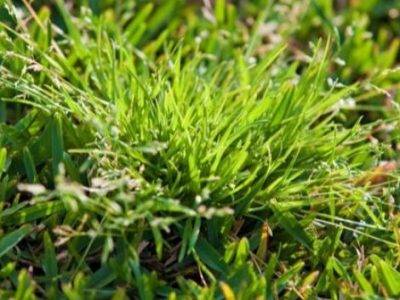Akers Monthly – June 2023

Hello Winter!
Gardening can be quite restricted in the winter due to the shorter days and cold, wet weather but there is still plenty that you can get done in your gardens! Putting in some effort during the cooler months can help ensure your lawns and gardens look vibrant and healthy come spring.
Read on for some essential tips and advice to keep your garden thriving throughout June.
Watering your Lawn During Winter
During winter you can switch off your irrigation timers and water only when needed, if at all. Keep an eye on the weather and the condition of your lawn. If there is a period without rain and your lawn becomes dry with the leaves starting to curl or wilt it will need a drink. If not keep watering to a minimum to avoid over-watering, which during winter, can encourage moss and leave it vulnerable to fungal diseases. Make sure any watering you are doing is in the morning so your lawn and soil can absorb it during the day, as leaving excess water to sit in the soil will encourage diseases and compaction.
Moss & Fungus
Some of the most common lawn problems experienced in winter are moss growth and fungal diseases. It is important to know how these issues are caused and what to look out for, so you will be able to best defend your lawn as soon as the cool weather hits.

Moss
Moss can grow in environments that contain additional moisture over a prolonged period, with a lack of warmth to dry it out. Shaded and compacted areas are particularly vulnerable to moss, and if moss starts growing in/on your turf it is important to act before it spreads further.
How do you remove Moss?
There are a couple of different methods for removing moss from your lawn:
- Mix water and dish soap together and spray the moss on a dry day to give it time to soak in. Once the moss starts to change colour pull it out from the root and dispose of.
- Pull out the moss by hand using a spade or rake, making sure to get underneath and remove as much of the root as possible.
- Apply a moss killer such as Manutec Moss Killer & Lawn Food. It contains high amounts of iron, which moss hates, along with some nitrogen and sulphur to help your lawn recover.
How do you prevent Moss?
Here are a couple of tips to give you the best chance of getting through winter without moss:
- Apply a fertiliser in autumn/early-winter, particularly one that has high iron content, to help strengthen the lawn against moss and diseases.
- Remove shade cover or thin out overhead growth where possible to increase sunlight access and help excess moisture evaporate throughout the day.
- Perform a soil pH test. Moss usually prefers a low pH range of 5 – 6, so could be an indication of your soil being too acidic. If your pH is this low, you will need to add some lime to reduce soil acidity and encourage healthy growth.
We also recommend doing the following during spring as they will help keep your lawn strong and healthy:
- Rake or scarify your lawn, depending on its thatch levels, to help remove and control moss. This will pull out any build-up of dead vegetation and thatch that could be retaining moisture and inhibiting healthy lawn growth.
- Aerate or core your lawn. If your lawn’s underlying soil is compacted, clayey and doesn’t drain well, it can remain excessively wet after rainfall which is ideal for moss growth. Aerating the ground will also help water, oxygen and nutrients reach the lawn’s roots, making it healthier, stronger and more resistant to turf diseases.
Is your lawn due for a scarify and/or core? Get in early and organise a free quote now to secure your spot come spring. Click the button below to enter your details, or give us a call on 8326 3255 to get started.

Fungus
Winter is a particularly vulnerable time for warm season lawns as they are unable to grow to strengthen or recover. Less daylight hours, wet conditions, and poor grass or soil health can leave lawns susceptible to developing fungal issues.
Increase your chances of avoiding fungus during winter by following these steps:
- Create less shade (if possible) by cutting back your trees and hedges regularly.
- Fertilise every 2-3 months alternating between granular and liquid.
- For a liquid we recommend using Akers Organic Based Liquid Kelp to help encourage growth and strengthen both roots and leaves.
- For a granular we recommend using Akers Organic Based Soil Booster & Lawn Food to improve root growth, soil microbes, and resistances to diseases.
- As part of our Follow Up Service, we can apply a Kelp treatment to your lawn, along with providing you with a lawn assessment. We can also apply our Akers Winter Blend – a granular soil conditioner that will improve soil health, pest and disease resistance, and water and fertiliser efficiency. Give us a call on 8326 3255 to organise a treatment for your lawn.
- Remove thatch build-ups, and regularly aerate your lawn.
- Water your lawn less often but for longer, ensuring the water gets deeper in the soil. During cooler months be aware of how much water your lawn is getting and avoid over-watering where possible.
- Keep your lawn healthy! A well-maintained lawn that has shade management, is watered appropriately, and is regularly fertilised, mowed, dethatched, and aerated is much less likely to have any fungal issues.
Keep an eye out for the following signs that could indicate a fungal disease in your lawn:
- Patches or rings that are white, yellow, or brown that grow in diameter
- Irregular discoloration or texture
- Coloured spots on leaf blades or stems
- Powdery coatings
- Thinned out areas, or areas of wet/slimy looking grass
- A group of mushrooms in the shape of a ‘fairy ring’
Treatment:
If your lawn has started to develop fungal issues it is important to act quickly. The best way to manage fungus is by first determining what it is, and what could be causing it. Fungus is usually caused by poor grass and soil health, overwatering, poor drainage, or soil compaction. It can be found more commonly in cool/damp conditions, and under trees or where water is pooling.
Following the above steps for avoiding fungus can help get rid of any present fungus, as well as applying a fungicide. We recommend using Impala Fungicide as it is effective against many leaf, crown and root diseases at multiple stages of development. Be sure to read product label for individual disease application methods.
Other Fungicide products that can be used on your lawn is Vantage Fungicide and, if you are wanting to use something on your lawns and gardens Yates Mancozeb, and Yates Tomato & Vegetable Dust are suitable.
For extra information click below to see a list of some common lawn disease types and how best to treat and prevent them.

Do you have some mushrooms popping up in your lawn?
Mushrooms appearing in your lawn is a fungus but will not present any issues and is a good sign that there is a lot of organic material in your soil which your lawn will love! The mushrooms can be hand pulled if you don’t want them in your lawn and will eventually disappear on their own. However, if several mushrooms are present in the shape of a circle or ring, that can indicate a different fungus called Fairy Ring and should be treated as soon as possible.
Tackling Weeds


Lawn growth may slow down during the colder months, but weeds are still actively growing. Even in a healthy lawn there is a chance the occasional weed will appear, especially if the lawn is dormant. When they do it is important to act early and not let them get out of control. Each weed has a different way that it grows and spreads, and therefore each needs to be treated differently. Identifying what the weeds are can sometimes be the hardest challenge, and we are here to help!
Join us on our Facebook page as we introduce ‘Weedy Wednesday’ to help you identify, treat and remove some of the local weeds that are popping up in your turf this season.
We stock a number of different weed control options in our instore and online shop, see the range here. Alternatively, we can apply some weed treatments as part of our Follow Up Service. Call us on 8326 3255 to enquire or book in.
Product of the Month

A balanced complete plant food. The organic based formulation is low in Phosphorus and ideal for all plants including natives. The blend of slow release and fast acting ingredients provides both immediate results and extended feeding for up to 3 months.
Akers All Rounder Plant Fertiliser is easy to apply, is suitable for year-round use and aims to:
- Boost root and plant growth
- Increase flower and fruit production
- Add trace elements & nutrients
- Improve soil health
Please read the label for application instructions.
Head to our Facebook page and follow the instructions to enter to win one of our Product of the Month!
Dal’s Gardening Tips
- Never prune in June. Wait until July or August.
- June is the ideal time to plant roses, fruit trees, ornamental trees, and shrubs. Choose a sunny spot for your new roses and prepare the site early in the month.
- Some natives will start to flower, so now is a great time to feed them. We recommend feeding with Akers Organic Based All Rounder Plant Fertiliser or Neutrog Bush Tucker.
- Add new mulch to plants to help retain the moisture in the soil. Remember to leave a buffer near the stem or trunk of the plant to allow the air to circulate to help prevent fungal diseases and pest attacks.
- Plant out beetroot, broad beans, broccoli, cabbage, cauliflower, celery, lettuce and spinach in the veggie patch for a late winter harvest. Garlic, shallot, and rhubarb can go in as well.
- Snails are prevalent now and need to be controlled before they wreck young winter flowers and veggie seedlings.
Did you know we have loyalty cards?
 Love our products?
Love our products?
SO DO WE!
Make sure you get your hands on one of our Akers Product Loyalty Cards!
How they benefit you:
Get a stamp for every Akers of Lawn product you purchase instore. On your 5th purchase you will receive 25% off an Akers of Lawn branded product, and on your 10th purchase you will receive one FREE!
As always, thank you for your support!
Best wishes,
Dal, Jacqi and the Akers of Lawn team
